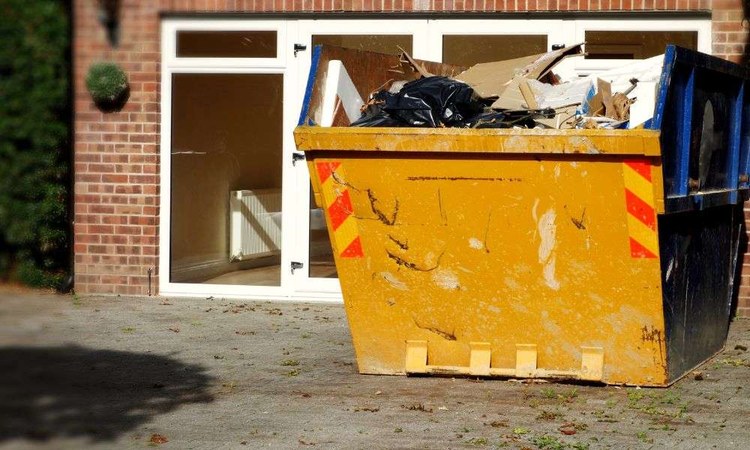Dumpster Rental Guide: Size, Benefits, and Duration Options
Renting a dumpster provides an efficient solution for managing large amounts of waste during home renovations, cleanouts, construction projects, and major decluttering efforts. Whether you're tackling a basement cleanout, roofing project, or estate sale preparation, understanding the rental process helps ensure you select the right container size, maximize the benefits, and plan appropriate rental periods for your specific needs.

How to Choose a Dumpster for Rental
Selecting the appropriate dumpster size requires careful consideration of your project scope and waste volume. Dumpsters typically come in four standard sizes: 10-yard, 20-yard, 30-yard, and 40-yard containers, with the number indicating cubic yards of capacity.
A 10-yard dumpster works well for small bathroom renovations, garage cleanouts, or landscaping projects involving approximately 3-5 pickup truck loads of debris. The 20-yard option accommodates medium-sized projects like kitchen remodels, flooring removal, or whole-room cleanouts, handling roughly 6-8 truck loads.
For larger undertakings, 30-yard dumpsters suit whole-home cleanouts, major renovation projects, or new construction debris, containing about 9-15 truck loads. The largest 40-yard containers handle commercial projects, large construction jobs, or major home additions, equivalent to 16-20 truck loads.
Consider your debris type when selecting size. Heavy materials like concrete, brick, or dirt require smaller containers due to weight restrictions, while bulky but lightweight items like furniture or drywall may fill larger containers without reaching weight limits.
What Are the Benefits of Using a Dumpster Rental for Home Cleanouts
Dumpster rentals offer significant advantages over traditional waste disposal methods during home cleanouts. The primary benefit involves convenience and time savings, eliminating multiple trips to local dumps or recycling centers. Instead of loading vehicles repeatedly and spending weekends driving back and forth, homeowners can focus on the actual cleanout work.
Safety considerations make dumpster rentals particularly valuable. Having debris immediately contained in a designated container reduces trip hazards, prevents scattered materials around your property, and minimizes the risk of injury from handling waste multiple times. This organized approach also protects your vehicles from potential damage caused by sharp objects or heavy materials.
Cost-effectiveness often emerges when comparing rental fees against multiple dump trips, vehicle wear, fuel costs, and time investment. Additionally, many rental companies handle sorting and proper disposal, ensuring materials reach appropriate recycling facilities or disposal sites according to local regulations.
Property protection represents another significant benefit. Dumpsters prevent debris from accumulating on lawns, driveways, or garages, maintaining your property’s appearance and preventing potential damage from scattered materials or weather exposure.
How Long Can You Keep a Rented Dumpster
Rental periods typically range from 7 to 14 days for standard residential projects, though most companies offer flexible scheduling based on project requirements. Initial rental periods usually include delivery, pickup, and disposal fees in the base price, making short-term rentals cost-effective for quick cleanouts.
Extended rental options accommodate longer projects like major renovations or gradual decluttering efforts. Daily or weekly extension fees apply beyond the initial rental period, with rates varying by company and container size. Planning your project timeline helps avoid unnecessary extension charges while ensuring adequate time for completion.
Some factors may affect rental duration requirements. Large cleanouts involving multiple rooms or significant sorting often benefit from longer rental periods, allowing homeowners to work at comfortable paces without rushing. Weather conditions, permit requirements, or scheduling conflicts with contractors may also necessitate rental extensions.
Communication with rental companies proves essential for duration planning. Most providers offer same-day or next-day pickup scheduling when projects finish early, potentially reducing overall costs. Conversely, extending rentals typically requires advance notice to ensure availability and proper scheduling.
| Provider | Container Sizes | Rental Period | Cost Estimation |
|---|---|---|---|
| Waste Management | 10, 15, 20, 30, 40-yard | 7-14 days | $300-$600 |
| Republic Services | 10, 20, 30, 40-yard | 7-10 days | $280-$550 |
| Waste Connections | 15, 20, 30, 40-yard | 7-14 days | $290-$580 |
| Local Providers | 10, 20, 30-yard | 5-14 days | $250-$500 |
Prices, rates, or cost estimates mentioned in this article are based on the latest available information but may change over time. Independent research is advised before making financial decisions.
Understanding dumpster rental basics empowers homeowners to make informed decisions for their waste management needs. Proper size selection ensures adequate capacity without overpaying for unused space, while recognizing the multiple benefits helps justify rental costs against alternative disposal methods. Planning appropriate rental durations prevents rushed work or unnecessary extension fees, making the entire cleanout process more efficient and cost-effective. Research local providers, compare pricing and services, and communicate your specific project requirements to maximize the value of your dumpster rental experience.




